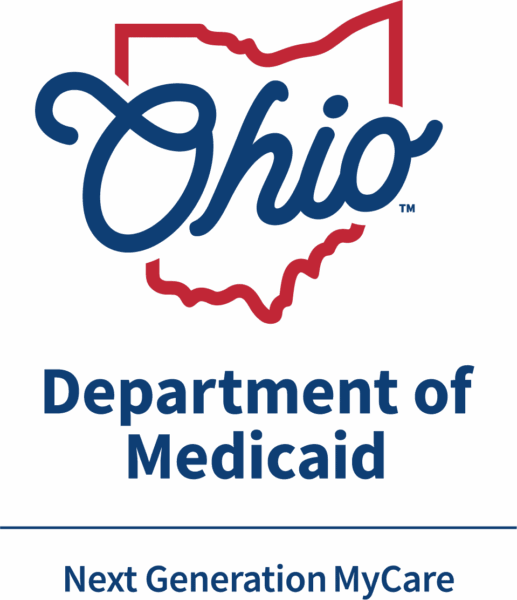
What is Retroactive Medicaid?
Retroactive Medicaid is a provision that allows Medicaid to cover medical expenses incurred before a person’s application for Medicaid assistance was submitted and approved. Specifically, in Georgia, Retroactive Medicaid can cover medical costs for up to three months before the application date, provided the applicant was eligible for Medicaid assistance during those months.
This benefit is especially important for individuals who may have delayed applying for Medicaid due to a lack of awareness of the program, sudden medical emergencies, or other unforeseen circumstances that led to significant medical bills before they were enrolled in Medicaid for health insurance coverage.
How to Qualify for Retroactive Medicaid in Georgia
To qualify for Retroactive Medicaid services in Georgia, applicants must meet the same eligibility criteria as regular Medicaid eligibility. Here’s a step-by-step guide on the qualification and application process:
- Meet Income and Asset Requirements: Medicaid eligibility is largely determined by income and, in some cases, assets. The income limits vary depending on factors like family size, age, and whether the applicant is pregnant, elderly, or disabled. In Georgia, the income threshold is typically aligned with the Federal Poverty Level (FPL) guidelines.
- Be Categorically Eligible: Applicants must fall into one of the eligible categories, such as being pregnant, a child under 19, a parent or caretaker of a minor child, aged 65 or older, or a person with disabilities.
- Provide Proof of Eligibility for the Retroactive Period: To receive Retroactive Medicaid, the applicant must demonstrate that they would have qualified for Medicaid during the three months prior to their application. This includes meeting the income requirements and any other relevant criteria during that retroactive period.
- Submit a Medicaid Application: Applicants can apply for Medicaid through Georgia’s Division of Family and Children Services (DFCS). When applying, it’s important to request Retroactive Medicaid and provide any necessary documentation, such as medical bills or proof of income, for the months in question.
- Timely Application: The application for Retroactive Medicaid should be submitted as soon as possible, preferably within 90 days of the service date for which coverage is sought. While there are some exceptions, timely application increases the likelihood of approval.

What Does Retroactive Medicaid Cover in Georgia?
The retroactive Medicaid program in Georgia is designed to cover a wide range of medical expenses that were incurred before the Medicaid application was approved, as long as the individual was eligible for Medicaid during the retroactive period. The coverage typically includes:
- Hospital Services: This includes inpatient and outpatient hospital care, emergency room visits, surgeries, and other essential hospital-based treatments.
- Doctor Visits: Coverage for physician services, including general practitioners and specialists, is included. This can encompass routine check-ups, diagnostic tests, and treatment for acute and chronic conditions.
- Prescription Medications: Medications prescribed by a physician, including those needed for chronic conditions, acute illnesses, or post-surgery recovery, are covered under Retroactive Medicaid.
- Laboratory and Radiology Services: Tests such as blood work, X-rays, MRIs, and other diagnostic services that are necessary for the diagnosis and treatment of medical conditions are included.
- Nursing Home Care and Home Health Services: For those who needed long-term care or home health services, Retroactive Medicaid can help cover the costs associated with skilled nursing facilities or in-home care services.
- Mental Health Services: Retroactive Medicaid also covers mental health services, including therapy, counseling, psychiatric evaluations, and any necessary medications.
- Preventive Services: Preventive care, such as immunizations, screenings, and wellness visits that were necessary during the retroactive period, are also covered.
- Dental and Vision Care: For children and some adults, Retroactive Medicaid may cover dental care, including routine check-ups, cleanings, and necessary dental procedures. Vision care, such as eye exams and corrective lenses, may also be covered for eligible individuals.
Benefits of Retroactive Medicaid Programs in Georgia
Retroactive Medicaid offers a range of benefits that can ease the financial burden of unexpected medical costs. These benefits include:
- Coverage for Unpaid Medical Bills: Retroactive Medicaid can help pay for medical bills incurred in the three months before the Medicaid application was submitted. This can include hospital stays, doctor visits, prescription medications, and other necessary medical services.
- Reduced Financial Stress: Medical expenses can quickly accumulate, leading to significant debt or even bankruptcy for those without adequate coverage. Retroactive Medicaid can alleviate this stress by covering past bills, allowing recipients to focus on their health and recovery without the added worry of financial ruin.
- Access to Ongoing Care: With Retroactive Medicaid covering past expenses, individuals are more likely to continue seeking necessary medical care without hesitation, knowing that future medical costs will be covered by their Medicaid plan.
- Protection for Vulnerable Populations: Retroactive Medicaid is particularly beneficial for vulnerable populations, such as low-income families, the elderly, and individuals with disabilities, who may otherwise be unable to afford essential healthcare services.

Conclusion
Retroactive Medicaid in Georgia is a powerful tool for those who find themselves burdened by unexpected medical expenses. By understanding what it is, how to qualify, what it covers, and the benefits it provides, eligible individuals can take full advantage of this provision to ensure they receive the healthcare they need without the overwhelming stress of unmanageable debt. If you or a loved one may qualify for Medicaid, consider exploring Retroactive Medicaid as a valuable resource for financial relief and improved access to healthcare.






